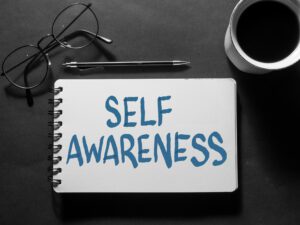Teachers play a crucial role in shaping young minds and preparing students for the challenges of the future. An essential quality that can transform a teacher from ordinary to outstanding is their ability to solve problems. Let’s explore the key impact problem-solving abilities have on empowering teachers and enhancing the overall learning experience in the classroom.

Navigating the Educational Maze
Teaching entails more than simply conveying information. It also involves handling the complex structure of various learning styles, unexpected obstacles, and various student requirements. Teachers who possess problem-solving abilities are better able to adjust, improve, and come up with creative solutions to provide a productive learning environment.

Fostering Critical Thinking
In the classroom, fostering critical thinking skills is coupled with cultivating problem-solving skills. This encouragement involves analyzing scenarios and the development of solution-proposal abilities, extending beyond the confines of traditional textbooks to provide a better learning experience for students. Hence, when teachers possess robust problem-solving skills, they inspire their students to adopt a proactive approach when faced with challenges.
Creating Resilient Classrooms
Teachers and students both exhibit resilience when they confront challenges head-on. As teachers master problem-solving techniques, they transform into resilient leaders, demonstrating to their students that, obstacles present opportunities for personal growth. This resilience not only shapes teachers but also positively influences the classroom environment, creating a space where both educators and students thrive.
Adapting to Technological Advances
Innovation is transforming education in this constantly altering age of technology. To stay current, teachers need to adjust to new resources and approaches. Teachers with strong problem-solving abilities can adeptly embrace technology, seamlessly integrating it into their teaching strategies. This proficiency allows them to navigate and overcome challenges associated with technological advancements, ultimately enhancing student learning in general.

Encouraging Collaborative Learning
Effective problem-solving requires collaboration, and teachers play a crucial role in creating a collaborative learning environment. Teachers with good problem-solving abilities foster collaboration among students by assigning group assignments and engaging in interactive activities. This promotes a feeling of shared responsibility and teamwork.
Building Lifelong Learners
Cultivating problem-solving abilities in teachers goes well beyond the classroom. It encourages teachers to always learn and get better at what they do. This means staying updated on new ideas, remaining aware of changes in their field, and finding creative ways to share knowledge. In this way, students are motivated to pursue lifelong learning because of this approach.
Solving Real-World Challenges
The primary purpose of education is to equip students with the skills and resilience needed to address real-world challenges. Teachers with great problem-solving skills integrate real-world situations into the classroom, pushing students to think beyond boundaries and apply what they’ve learned to address real-world issues that they could face later in life.

Empowering Teachers
The development of problem-solving abilities among teachers is a huge improvement in the educational landscape. Teachers who use and improve these skills help create strong thinkers ready to tackle future problems. Let’s support and empower our teachers by recognizing problem-solving as a crucial skill for developing future leaders.
Disclaimer: Any opinions expressed in this blog do not necessarily reflect the opinions of Red Moon Communications. This content is meant for informational purposes only.






